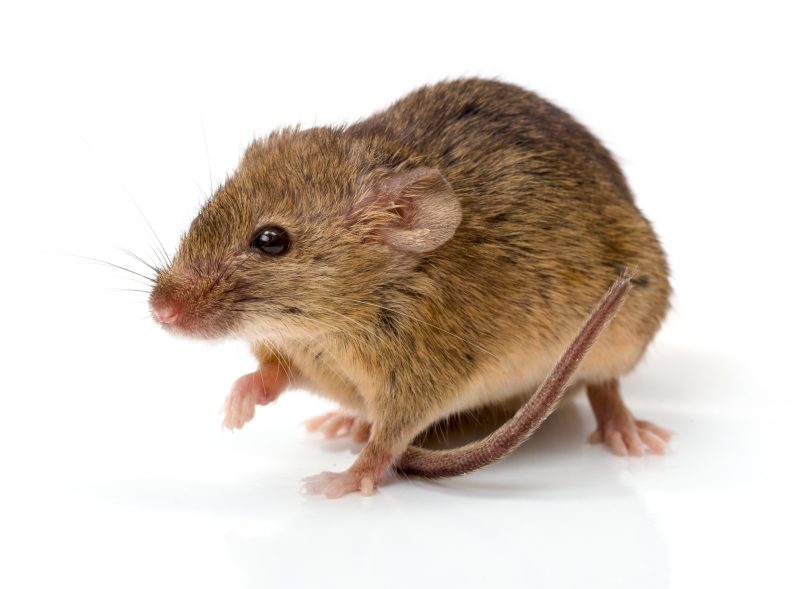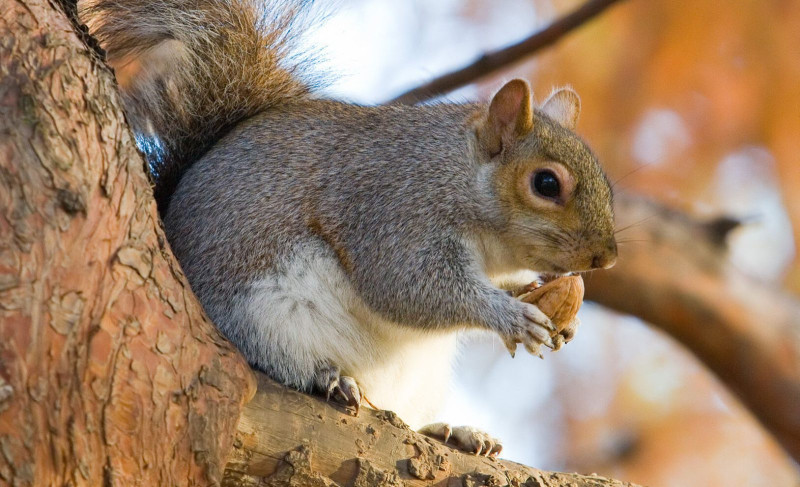Do raccoons get rabies?
The vast majority of raccoons don’t have rabies. Still, raccoons are the most frequently reported rabid animals. If you see one in the daytime, it’s probably a hungry mother—they have high energy needs while feeding their young and sometimes come out to eat, even in daylight. Symptoms of rabies include lethargy, stupor, walking in circles, paralysis of one or both back legs, falling over, eye or nose discharge, or unexplained aggressiveness. Call Animal Control if you observe these behaviors. Also, always watch raccoons from a distance; even healthy ones will act aggressively and bite if frightened or cornered.
Why do raccoons wash their food?
Many of us learned as young schoolchildren about the raccoon’s habit of “washing” its food. That seems like a cool thing to do, but the truth is that raccoons don’t wash food. Instead, calling it a “moistening” is more accurate, and no one is sure why they do it. There are theories:
One is associated with their tactile ability: Their sense of touch is their strongest sense, and perhaps raccoons wet their food to feel its texture better. An older theory held that raccoons have no salivary glands and must wet their food to digest it. But research since then has laid that to rest—raccoons have normal salivary glands.
Captive raccoons will douse their food if water is made available to them, but those in the wild wet it or don’t, depending on where it’s located and its proximity to water. And it seems they like to dunk regardless of whether their food is clean, dirty, wet, or dry.
Dunking food is so ingrained that raccoons are known to go through hand motions even when water isn’t available. Some researchers think this is simply a process of removing dirt and sand that would hurt their teeth. Others have reasoned that raccoons manipulate their food to soften it for consumption or to ensure it doesn’t contain sharp bones or other inedible particles. Finally, there’s the theory that they do it as an evolutionary behavior for which there is no longer a practical reason.
How can I tell if raccoons are visiting my yard?
Start watching after dark. Or, you might hear them if they’re crashing around in your garbage bins or bird feeders. If you have a pond, they might be trying to catch fish there or moistening food. Walk into your yard with a flashlight. Look up into the trees, too. The light won’t alarm them but keep your distance for your safety.
You can practically ensure seeing a raccoon if you place a bowl with some canned dog food outside every evening. But please don’t feed them indefinitely, as a matter of safety for them and you. Encouraging them to eat there regularly will lead to nuisance problems: Some people, for instance, have reported raccoons scratching and tearing at their door if food isn’t left out.
How smart are raccoons?
Very smart. By some accounts, they’re as intelligent as primates. William R. West, a wildlife photographer and naturalist, says this about the pet raccoon he had as a boy:
The raccoon, called Sparky, loved raw eggs. One day Sparky was moved to a new cage with a chicken wire floor raised several inches above the ground. His old cage had had a solid floor. On this day, Sparky was given a raw egg, and he followed his usual procedure of biting off the top of the egg so he could lap out the contents. However, the egg tilted and spilled its contents, which drained through the wire. So Sparky was given another egg. This time he went directly to his food bowl and held the egg over it as he opened and ate it. He never again lost an egg through the floor.
A fellow named Dick Meister tells a first-person account of trying to keep a group of raccoons out of his vegetable garden by setting up an automatic water-spraying device; the raccoons solved their problem by aiming the sprayer away from the garden. Why they invited the coonskin cap
What should I do if I find a baby raccoon?
Orphans are rare. It may have wandered or fallen from his den. Observe the baby from a distance for several hours. The mother may be out foraging or even watching you from nearby. When she returns, she’ll carry it back to her den. If you know where the den is, gently pick it up and put it back there. (Always wear heavy gloves when handling wildlife, even babies.)
If you’re confident it’s orphaned, place it in a lidded box (with air holes) or carrying case, with a towel in the bottom for warmth and traction. Don’t try to feed it; the wrong food could be harmful. Instead, take it to a wildlife rehabilitator as soon as possible. If you don’t know who to call, try this site. You might also get information from your state’s Fish and Wildlife Department.
Raccoon babies are adorable, and it may be tempting to raise it yourself, but don’t. Depending on its age and physical condition, it may need special foods or medical treatment for injuries, parasites, or diseases. An experienced rehabilitator will care for it and release it back into the wild. It’s vital that young raccoons stay fearful of humans for their own safety. Another thing, raccoons aren’t placid animals; even babies can give a severe bite, and they become difficult to handle as they age.
I’m raising a baby raccoon
Don’t try to keep a raccoon as a pet. Both as babies and adults, they require a lot of attention to socialize them with humans. As adults, they’re unpredictable and can become aggressive and difficult to control. Raccoons are smart (according to some reports, as bright as primates) and naturally curious. This leads to destructive behavior inside the house (what’s behind that door, what’s inside that jar, what’s on top of the curtain rod, what’s in the refrigerator, what’s inside the sofa cushion…?), or to their having to be constantly caged, a miserable fate. During mating season, they become frustrated and aggressive in response to their inability to find a mate. Also, finding a veterinarian who will treat them is challenging.
Furthermore, once a raccoon owner realizes the warnings aren’t exaggerated, that raccoons really don’t make good pets, what’s to be done with the “pet?” A pet raccoon can’t be released back into the wild because it hasn’t learned the survival skills its mother would have taught it during its first three months of life. The poor animal won’t know how to defend himself or find food, water, and shelter. The only realistic option may be to have it euthanized, a tragedy that could have been avoided.
I found an injured raccoon
If the injury doesn’t appear to be life-threatening, leave it alone. It’ll growl and snarl, and you should take the warning seriously—it’s frightened and probably in pain; it’ll bite. If it definitely needs help, throw a blanket over it and use a shovel or broom to scoop it into a box (with plenty of air holes). A better choice is a wire crate, if you have one, because a raccoon can bite right through softer material. Contact a wildlife rehabilitator immediately. If you don’t know who to call, try this site. You might also be able to get information from your state’s Fish and Wildlife Department.
If it is behaving abnormally (see the rabies section above), stay well away from him and call Animal Control. Follow it, if possible, so that you can direct Animal Control to its location.
Are pets safe from raccoons?
Yes and no. Raccoons are susceptible to rabies, but the vast majority are not rabid. You should always keep your pets vaccinated against rabies. Raccoons are also vulnerable to distemper (a virus), which can be transmitted to pets. And most raccoons carry a parasite, Baylisascaris procyonis, a roundworm that’s harmless to them, but dangerous to humans and pets. Raccoons want to be left alone and won’t attack unless threatened.
Trapped in a room, attic, chimney
See: How to humanely remove wildlife from people spaces





